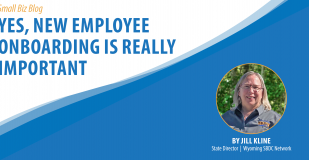Many cyber attacks are successful because they prey on humans instead of devices. It is a lot easier for criminals to take advantage of people than it is to hack into a system. To protect your business, your employees need to be trained on what to do and what not to do to keep your systems and data protected and become your human firewall.
Here is a list of habits that can do wonders:
- If you didn’t go looking for a piece of software, do not install one because a website or email is convincing you to. This includes email attachments that say you need to install something to view it.
- Do not just click on links in emails, even from people you know as they might have been hacked or their addressed spoofed. (Like phone spoofing: remember those calls you keep getting from Elizabeth regarding a cruise from a local number?). Instead “hover” your cursor over it and examine the actual destination and make sure it makes sense.
- If you receive a file from someone, maybe a pdf or word document, especially from a stranger, think before opening it: Are you expecting it? Is this normal? Instead, how about calling the sender to verify? Pdfs and Microsoft office documents are great tools to get into your computer because people trust them.
- Limit your public social media footprint and don’t fill in those 10-question chain posts that often include verification information for someone pretending to be you. A common method of guessing passwords is to find the person’s social media pages and make a note of names, family members, pets, locations, birthdays and other things to make a list. They then make variations and combinations to try until they get in.
- Don’t use the same password. All database hacked passwords are free to download. When they get your username/password, they will try it on other sites, including banking sites and shopping sites. Try using a password manager instead that generates and keeps track of long and random passwords for each of your online services.
This will help protect you from attacks that have lead to many of the breaches, spyware and ransomware we’ve seen with Wyoming businesses.
If your business is interested in free cybersecurity training for your business from KnowBe4, the Wyoming SBDC can provide a limited number of free licenses. Please contact Jim at James@uwyo.edu for more information.





